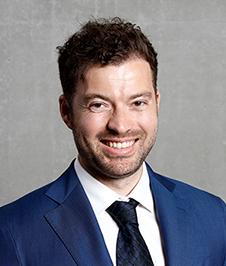Some eye diseases must be treated urgently – don’t avoid the clinic
At the period of the epidemic of COVID-19 virus infection the hospital has become a place that most people try to avoid visiting. However, during this epidemic outbreak, it is necessary to know the common sign of the diseases that need to be treated urgently. Patients with the following diseases require medical attention as soon as possible.

Acute angle-closure glaucoma
The patient usually present with sudden eye redness, eye pain, headache, nausea, even vomiting. Special concern needs to be paid with patients who have a family history of glaucoma. These signs often suggest the possibility of acute angle-closure glaucoma. Glaucoma can cause sudden increase of intraocular eye pressure, and irreversible damage to the optic nerve. If not treated on time, permanent visionary impairment could take place.
Eye trauma
If the ocular trauma is a sharp injury, such as a knife, scissors, etc., causing eye bleeding and vision loss, medical consultation is needed as soon as possible. If the trauma is a blunt contusion, such as boxing injury, no obvious vision loss, no limiting of eye ball movement, no eye bleeding, only eye swelling or eye pain, patient can be observed temporarily with ice compress upon the injury. Once the patient has vision loss, obvious eye pain when moving the eye ball, shadow vision symptoms, please go for medical treatment as soon as possible.
Foreign body in the eye
If a foreign body enters the eye and causes obvious eye pain, medical care is needed ASAP. Sometimes people accidentally get chemical substance such as glue or special lotion into the eye, they first need to rinse the eye with clean running water, try to find the manual and identify the chemical name of the substance in the eye, then seek for medical attention.
Retinal detachment
Sudden vision decrease and shadow vision in front of the eyes, especially in people who are highly nearsightedness, need to be alert to the possibility of retinal detachment. Retinal detachment is an ocular emergency and requires surgical treatment. The sooner the surgical operation takes place, the better the vision recovers. If the patient can be operated before retinal detachment spread to the macula, visionary function normally can be well recovered. If the retina is massively detached for long time, it only makes surgery more difficult and the visual prognosis rather bad.
Vitreous hemorrhage
Usually present with sudden blurred vision, black shadow moving. Vitreous hemorrhage may be considered in patients with diabetes or high blood pressure. Especially diabetic patients are isolated at home, lack of sports, and if they are not careful about their diet, they may have blood glucose fluctuation which causes vitreous hemorrhage.
Just in case it happens, please check your blood glucose value or blood pressure first. Then see a doctor as soon as possible. Early small amounts of bleeding may not require surgery. The patient can stay still and observe for 2 weeks. If the hemorrhage is not getting better, surgery needs to be performed as soon as possible.
EuroEyes Ophthalmologist advises diabetic patients to continue doing sports and on a diet control, carry out sports suitable for them according to the situation, do not reduce sports due to home isolation, and maintain regular blood glucose monitoring.
Optic neuritis
Sudden vision decreases, fixed shadows in front of the eyes, and eye pain with or without eyeball rotation, all these symptoms may be related with inflammatory of the optic nerve, which require timely medical treatment.
Acute conjunctivitis
If the patient suddenly has red eyes, eye discharge, morning secretions that stick to the eyes, itchy eyes but no visionary disturbance, don’t worry too much. Probably could be acute conjunctivitis, and the patient need to use local eye drops appropriately according to the specific situation, which should be alleviated. It is advisable to seek medical attention promptly for acute and sudden symptoms.
When you visit the doctor, please make sure that you have not had any fever or cough symptoms recently; you have not been to a high-endemic area within two weeks, and you have not been exposed to a patient with confirmed COVID-19. This important information must be truthfully notified to the doctor, and the intention to conceal the condition and history is to hold legal responsibility, which is harmful to anyone and not beneficial.
Medical consultation can be postponed under the following conditions during the epidemic period:
1. If the patient has red bleeding “white eye” and no visionary disturbance, no secretions, no other eye discomfort, it may be just subconjunctival bleeding. No special treatment is required. The bleeding will be absorbed by itself, and blood cholesterol, blood pressure and blood glucose should be monitored.
2. Cataract is an elective operation. It is presented as slow vision decrease without pain symptoms, and the patient feels like looking through a thin layer of gauze. You can wait to see the doctor after the outbreak.
3. Several small black shadows are floating in front of the eyes of the elderly patients or patients with myopia, like flying mosquitoes, which are sometimes absent, without vision loss and shadow vision. This symptom is considered as vitreous opacity, in this case it is not necessary to worry too much. If this situation persists for a period of time without obvious changes, you can continue to observe; if there is an aggravation of dark shadows or even a fixed shadow, you need to see a doctor in time.
4. Child patient has slow blurry vision, clear near vision, and poor distance vision, it may be myopia. Once the epidemic is stable, you can take your child to a regular medical institution for medical optometry.
During the epidemic, outdoor activities are reduced, electronic products are used too much, and online classrooms are increased, which will definitely increase children’s myopia development probability. Parents must urge their children to watch fewer electronic screens and look out the window as much as possible. When the child looks in the distance at 5 meters away, he can relax the eye muscles. It is recommended to look out for 10 minutes every hour, or look at the outside scenery, count the passing vehicles, and bath in the sun on the balcony, which can help the eyes rest well.
During the epidemic, each hospital also launched a free online consultation. It is recommended that you consult an online doctor for non-emergency situations and listen to professional advice to minimize the number of visits to the hospital and avoid cross-infection.
Contributed by Beijing EuroEyes Ophthalmologist: Dr. He Chunchun
About EuroEyes
The EuroEyes Clinic Group is a globally successful company that was founded 26 years ago in Hamburg and has its headquarters there until today. In addition to locations throughout Germany, EuroEyes is also represented in China and Denmark. The company offers patients the full range of refractive surgery for the correction of visual disorders. Using state-of-the-art eye laser and lens surgery procedures, EuroEyes treats more than 25,000 patients each year with nearsightedness, farsightedness, astigmatism, presbyopia or cataract. The treatment enables the start of a life free of glasses and contact lenses without any impairment of visual quality.
Are you also interested in laser eye treatment at EuroEyes or would you like to find out more about us? Then please contact our service or fill out our contact form. We look forward to you!
+49 40 348 09 29 0 – service center in Germany (English, German and Chinese)
Monday to Friday: 08:00 – 20:00
Saturday: 09:00 – 14:00


















Join our Newsletter